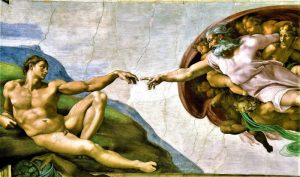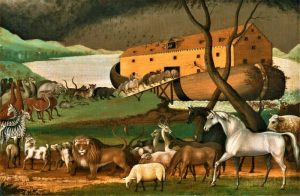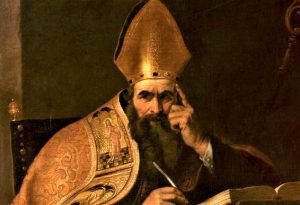Polytheism
Polytheism is the belief in, or worship of multiple gods. These gods are often different and separate beings, and are often considered similar to humans or anthropomorphs in their personality traits, but with additional individual powers, abilities, knowledge or perceptions. Common deities found in polytheistic beliefs include a god of heaven, the deity of death, the mother goddess, the goddess of love, the deity of the creator, the deity of the cheat, the deity of life, death and rebirth, and the hero of culture. Polytheism is based on the idea that the universe is governed by more than one force. Therefore, there may be a water god, a mountain god, a desert god, etc. Each of these gods must be appeased and for that reason, these different forces receive some kind of worship.
What is polytheism?
Polytheism is a word that indicates the presence or belief in several gods, it belongs to people who as a doctrine, believe in more than one god. It is a religion totally opposed to monotheism and each god that makes it up needs worship and adoration.
About polytheism
Polytheism consists of the worship that people perform to a series of different gods which are characterized and distinguished by their particular and unique functions, which generally have human characteristics, but are full of powers and are responsible for protecting human beings.
Characteristics
The most notable characteristics that we can find in polytheistic religion are:
- It is based on the worship of multiple gods that are organized according to their hierarchies.
- Each divinity of polytheism directs certain aspects of
- All gods have their own characteristics, which are easy to distinguish and identify.
- Gods can be invoked individually or in groups, depending on the type of power they enjoy.
- They include belief in many demonic and ghostly forces in addition to gods, and some supernatural beings will be malevolent.
- He may have various relationships with other beliefs.
Origin of polytheism
Polytheism was originally recognized as an intermediate stage between different religious thoughts. Animism was the first stage and explained that all animate and inanimate things had a soul of their own. The second stage referred to primitive magic which said that the world could be controlled through mysticism, paranormal and supernatural activities. The third and final stage was basically monotheism, characterized by the presence of a single god or divinity. During these stages, there were some intermediates in which the poly-demonism arose, which affirmed that the world was full of spirits. It is for this reason that polytheism represents an evolution between primitive thought and monotheistic thoughts. In the Vedic culture of India, polytheistic religion began, then spread to other countries.
History
In the 19th century, many theories arose that affirmed that humans in Prehistory were already able to differentiate between the physical body and the soul, which encouraged the belief in several spirits, both people and animals, plants and even objects. It spread throughout the ancient world thanks to the Egyptians who had their belief system based on multiple gods. These gods were the most important thing for the Egyptian people. Later, the Greek gods took human forms and different personalities. When the Roman Empire conquered the Greeks there was the assimilation of Greek polytheistic culture. From that moment on, polytheism began to spread to Africa, Europe and America. Today, with the exception of Christianity, polytheism is found in many of the world’s religions and in many countries, which continue to practice this ancestral practice.
Importance
For polytheism followers, religion is important because the gods that are found in it have different abilities and can help them in different ways and aspects of daily life, for this reason is that gods are worshipped depending on their characteristics and the function they fulfill within the life of believers.
Roman polytheism
Roman polytheism was based on a series of protective divinities for each activity they carried out, even for objects that were part of their lives. Some of their gods were, for example: Janus who was the god of portals, Silvanus who was the god of forests and Faunus the god of everything belonging to nature. They also had gods for agriculture and their animals. All their divinities had exceptional powers, used to perform complex ceremonies, sacrifices and rites.
Egyptian polytheism
For the Egyptian culture there were many gods which were organized by hierarchy, or pantheons, as they were normally known. It had its origin in the divinations of the forces of nature, the worship of the dead and to exalt the power that the animals had. For them, gods could take forms and characteristics of things included within nature and identified with the universe, its components, forces and nature.
How to cite this article?
Briceño V., Gabriela. (2019). Polytheism. Recovered on 23 February, 2024, de Euston96: https://www.euston96.com/en/polytheism/










